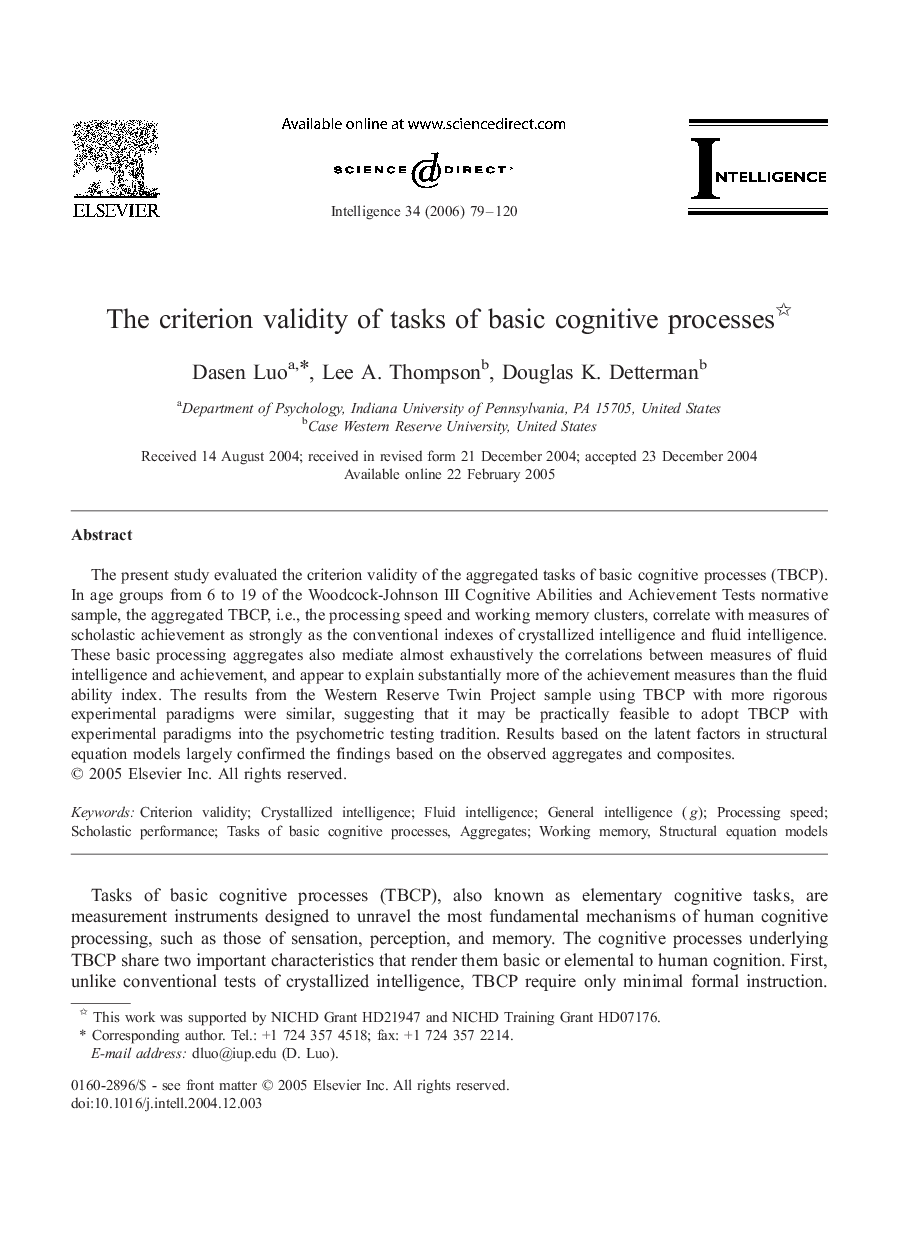| Article ID | Journal | Published Year | Pages | File Type |
|---|---|---|---|---|
| 929578 | Intelligence | 2006 | 42 Pages |
The present study evaluated the criterion validity of the aggregated tasks of basic cognitive processes (TBCP). In age groups from 6 to 19 of the Woodcock-Johnson III Cognitive Abilities and Achievement Tests normative sample, the aggregated TBCP, i.e., the processing speed and working memory clusters, correlate with measures of scholastic achievement as strongly as the conventional indexes of crystallized intelligence and fluid intelligence. These basic processing aggregates also mediate almost exhaustively the correlations between measures of fluid intelligence and achievement, and appear to explain substantially more of the achievement measures than the fluid ability index. The results from the Western Reserve Twin Project sample using TBCP with more rigorous experimental paradigms were similar, suggesting that it may be practically feasible to adopt TBCP with experimental paradigms into the psychometric testing tradition. Results based on the latent factors in structural equation models largely confirmed the findings based on the observed aggregates and composites.
